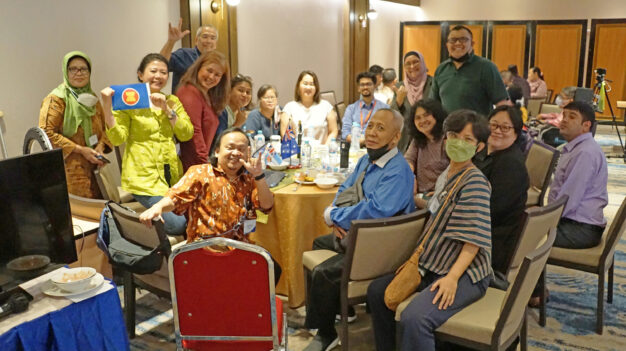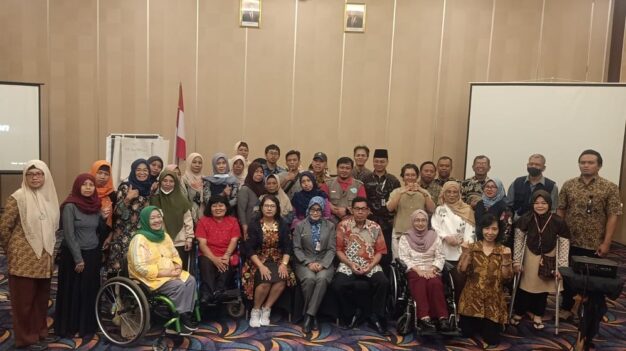The Challenge
One in seven people in the world has some form of disability, but like women, Indigenous communities, and other marginalized groups, they are routinely left out of environmental justice conversations and action. Policies to mitigate the impacts of environmental degradation frequently fail to consider disability rights. For example, during climate change-related emergencies, people who are deaf or blind may not have equal access to warning alerts, and persons with mobility restrictions are not always able to access shelters. Moreover, people with disabilities should be represented in community land use and natural resource planning, but planners may fail to make a special effort to ensure people with disabilities are reached and invited to the table.
Ableism and the climate crisis are intrinsically linked, and it benefits us all to link disability rights with climate justice. With unique insights about their own situation and imposed barriers, people with disabilities have important roles to play in proposing creative and relevant solutions to improve their communities and protect our shared planet. Persons with disabilities are frequently deprived of their rights, face stigmatization and discrimination, and are uniquely affected by the impacts of climate change and environmental degradation. Pollution, jobs in environmentally destructive industries, and other hazards linked to the climate crisis jeopardize everyone’s right to live in a healthy environment, particularly in the case of those who live with chronic illnesses or have a disability.
Our Solutions
Funding at the intersection of disability rights and the environment is an increasingly more recognized field in global philanthropy. Since 2018, Global Greengrants Fund has seeded initiatives that integrate persons with disabilities into environmental justice efforts. This is an essential step towards supporting global environmental justice that is rooted in cultural integrity and led by communities and grassroots movements.
In 2022, Global Greengrants formalized our grantmaking at the intersection of disability and environmental justice into the Disability Rights and Climate Justice (DRCJ) Advisory Board, a global board dedicated to encouraging intersectional connections between disability rights and environmental justice.
Through the DRCJ Board, and by integrating a disability rights lens into the work of all of our advisory boards, Global Greengrants Fund is supporting organizations of persons with disabilities working to promote environmental justice. Here’s how they do it:
- Encourage consultation to identify the needs and strengths of persons with disabilities in local communities in relation to their environmental health, resource-based livelihood needs, access to resources, and land rights.
- Create accessible information and spaces where persons with disabilities can learn about and engage in decisions about climate change and environmental policy.
- Provide funding to activist groups founded and led by people with disabilities who are advocating for just compensation, decision making, and rights at the policy level when affected by corporate environmental degradation, pollution, or land grabbing.
- Advocate for accessible disaster risk reduction efforts to ensure that persons with disabilities are not left behind: make sure warning signals are accessible and that escape routes and shelters can accommodate persons with disabilities.



